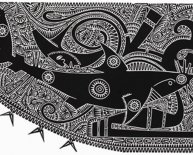
Customs procedures
This topic includes various subjects such as Certificate of Origin, Advance Rulings, NAFTA Claims, Verifications, Determinations, and Appeals to name a few. This information is gathered from a variety of Customs published documents.
Advance Rulings
An advance ruling is a written document received from the customs authority from a NAFTA country. It provides binding information on specific NAFTA questions you may have about future imports of goods into Canada, Mexico and the United States.
Certificate of Origin
This is a trilaterally agreed upon form used by Canada, Mexico, and the United States to certify that goods qualify for the preferential tariff treatment accorded by NAFTA. The Certificate of Origin must be completed by the exporter. A producer or manufacturer may also complete a certificate of origin in a NAFTA territory to be used as a basis for an Exporter’s Certificate of Origin. To make a claim for NAFTA preference, the importer must possess a certificate of origin at the time the claim is made.
Country of Origin Marking
Country of origin marking is used to clearly indicate to the ultimate purchaser of a product where it is made. NAFTA marking rules are also used to determine the rate of duty, staging and country of origin applicable for NAFTA goods.
Verifications
Verifications is the process used to by the customs authorities to determine whether a good qualifies as NAFTA originating when a preferential duty rate has been claimed.
Recordkeeping
All records related to a preferential duty claim under NAFTA must be kept for a minimum of five years.
Appeals
These procedures are used by importers, exporters or producers of goods to request a second review of NAFTA decisions given by the customs administrations.
The Standards document sets forth the uniform regulatory standards adopted by Canada, Mexico and the United States for purposes of implementing the preferential tariff treatment and other customs-related provisions of the NAFTA.

















